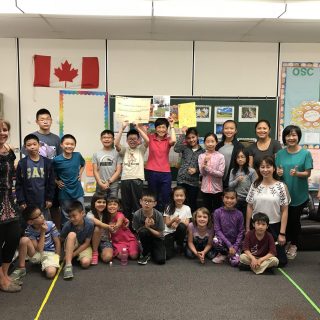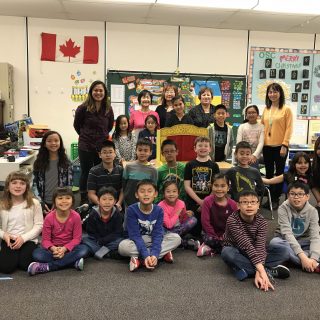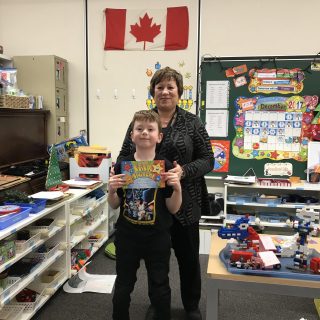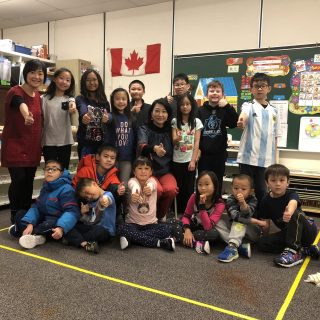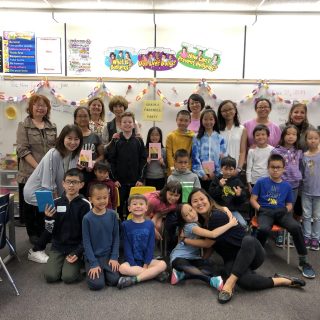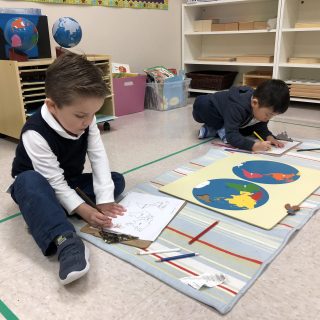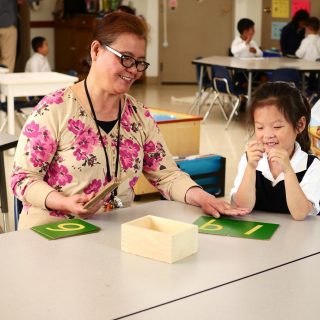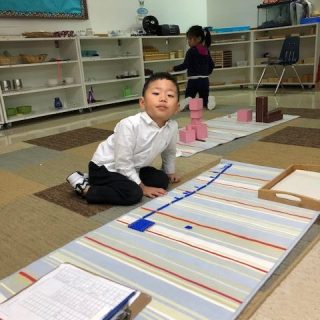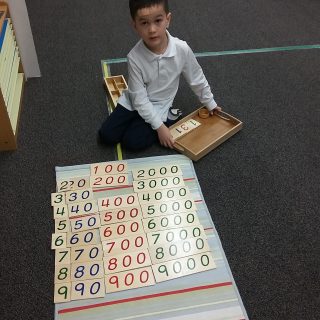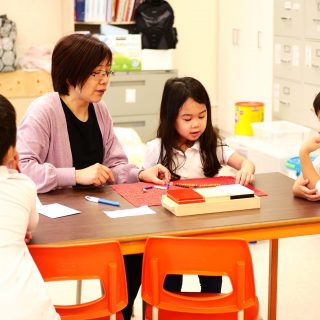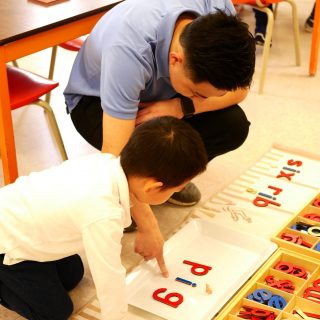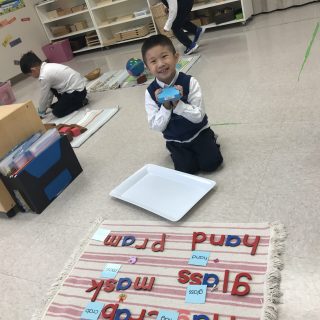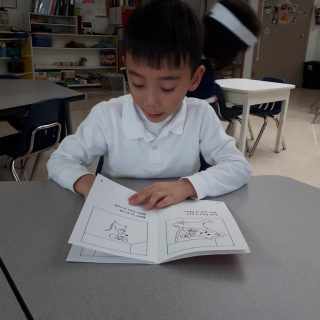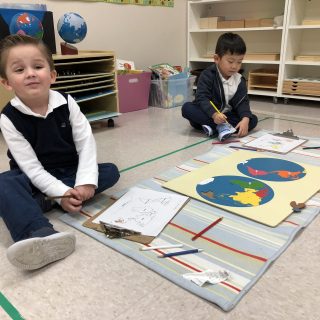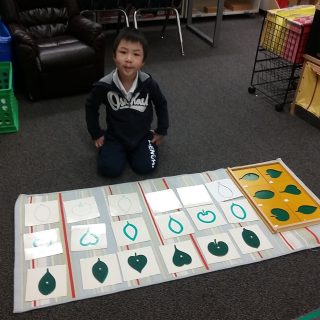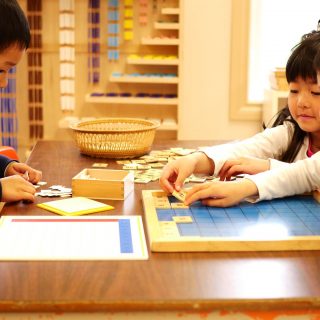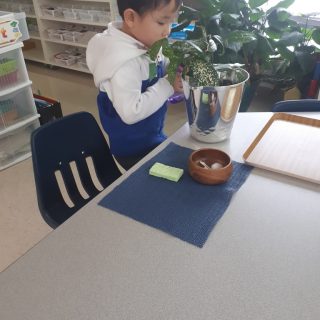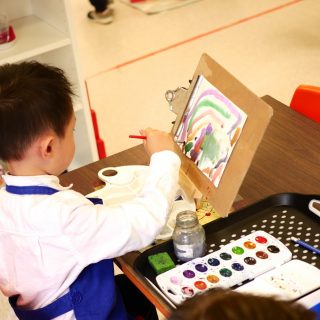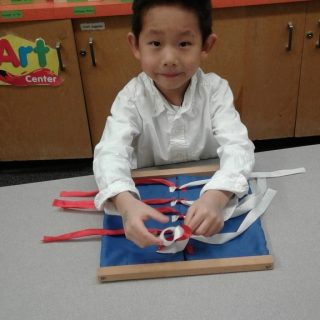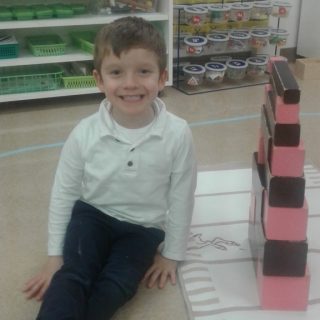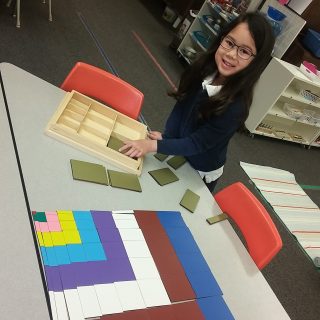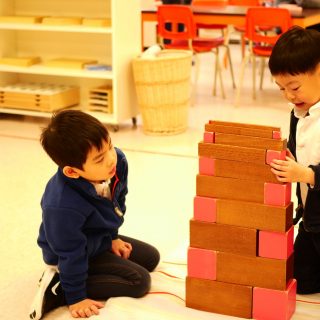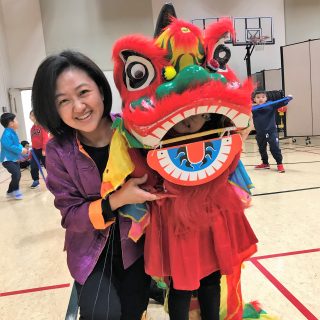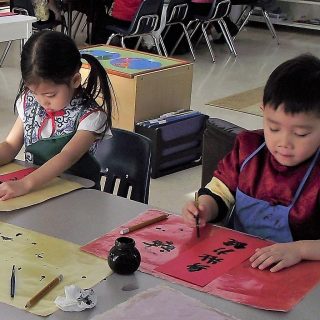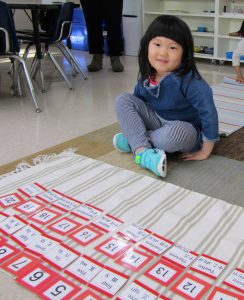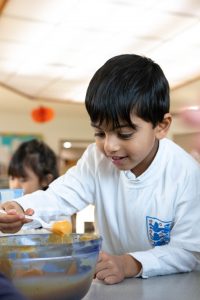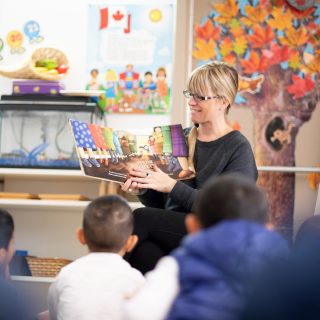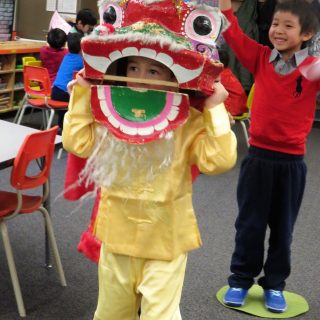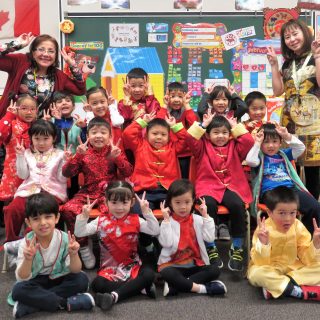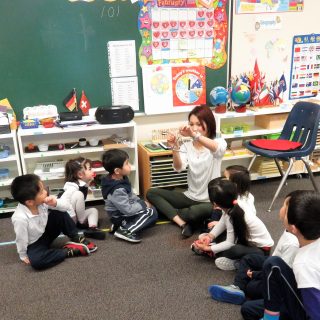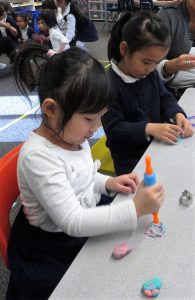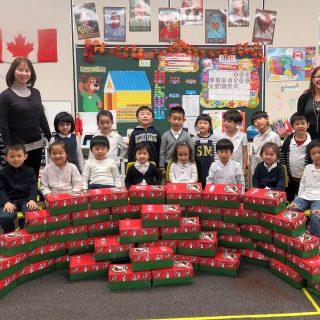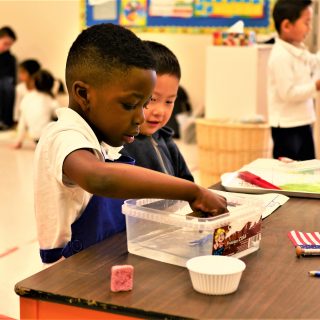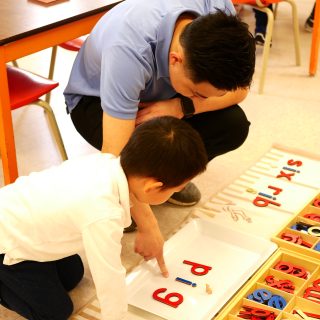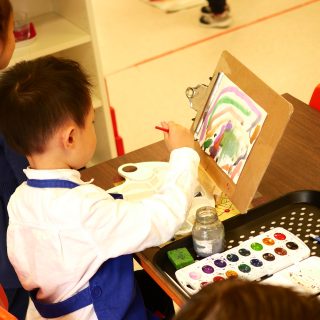“Education is not what the teacher gives, education is a natural process spontaneously carried out by the human individual… by his experiences upon the environment.” – Dr. Maria Montessori
The Montessori philosophy aims to develop the child’s innate ability to absorb and the unusual sensitivity to learning from people. The child can self-construct with purposeful activity. The purpose of Montessori education is an aid to life. To educate the whole child, Dr. Montessori felt the child must be free to learn at his or her own pace and in an individualized manner. She believed that children ages 0 to 6 are in the most critical period of their lives. During these years, children’s environment will significantly impact their development, and it helps stimulate their intelligence to the maximum. She developed the “prepared environment” (an environment prepared with didactic equipment), which possesses a specific order and disposes the child to develop at his or her capabilities in a non-competitive atmosphere.
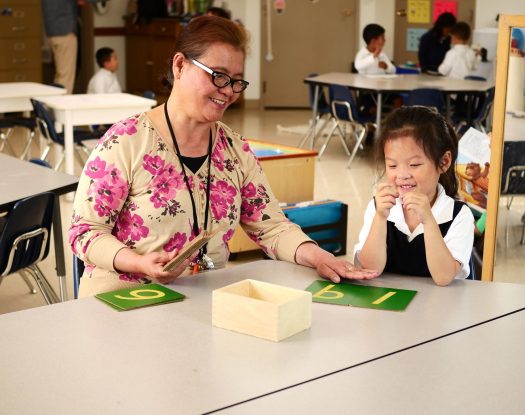
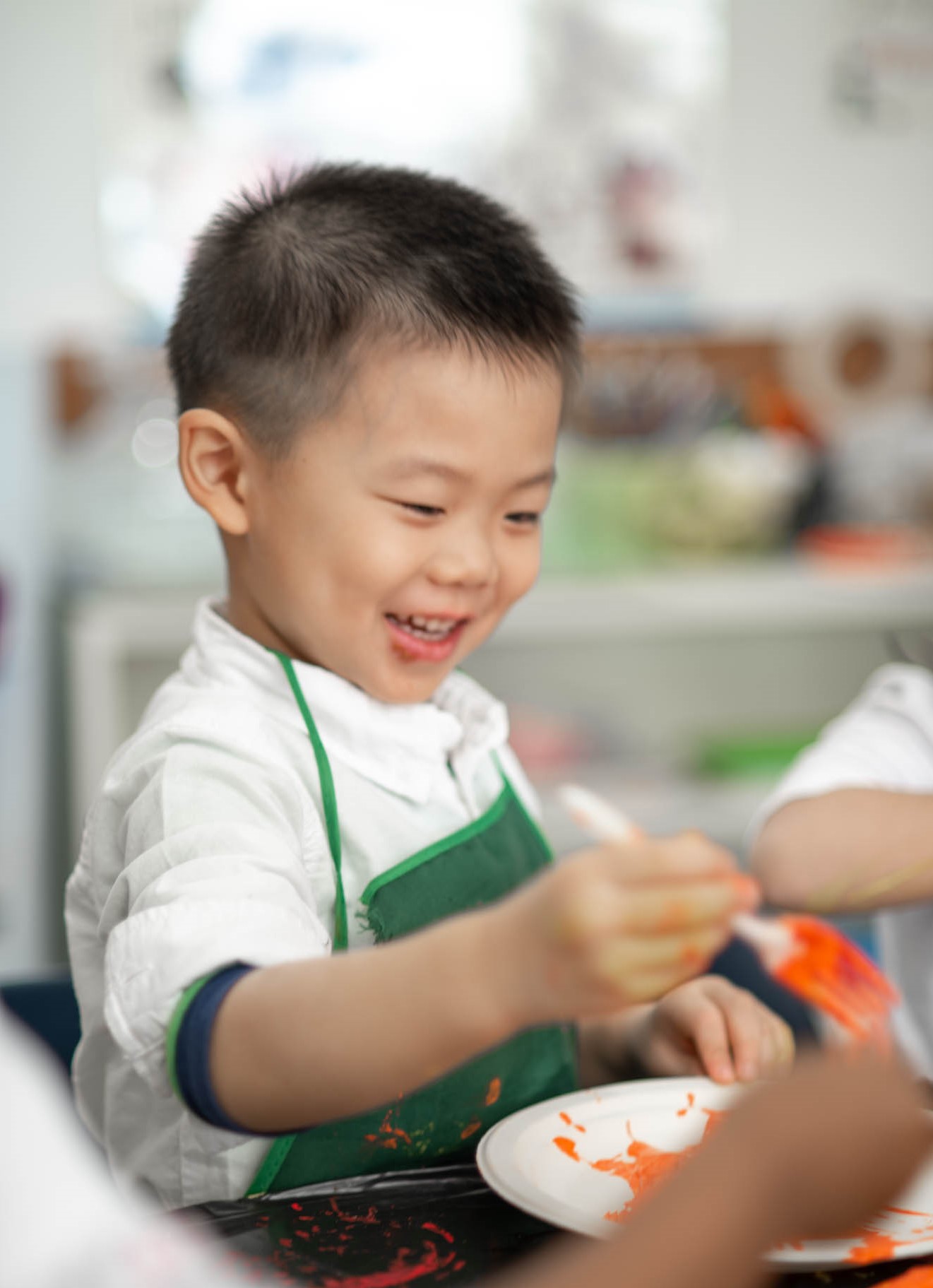
The Canadian Council of Montessori Administrators
Freedom and Responsibility
Montessori Education balances freedom and responsibility. The approach is scientifically grounded in the stages of development. Parents are able to see how it encourages intrinsic motivation and a high interest in learning. Parents who make classroom visits often comment that their child is energized to learn, experiences a sense of well-being and works with focus and concentration.
Community and Teamwork
Visiting a Montessori classroom, parents see their child active and valued as part of the class and school community. They see their child engaged in meaningful conversations with classmates and adults and developing social teamwork capabilities, while at the same time learning independence and self-direction.
Future Success
Current research confirms the benefits of a Montessori education which provides essential skills for future life and success. Outcomes of a Montessori education provides a strong base for children to respect others, develop solid academic skills, make connections and apply their knowledge, find work that is intrinsically satisfying and be engaged as global citizens.
Background
Dr. Maria Montessori believed that children ages 0 to 6 are in the most important period of their lives. During these years, children’s environment will have a great impact on developing and stimulating their intelligence to the maximum. Dr. Montessori developed the “prepared environment” (in other words, an environment prepared with didactic equipment), which possesses a certain order and disposes the child to develop at his or her own capabilities in a non-competitive atmosphere.

FAQ
Montessori is a philosophy and method of education which emphasizes the potential of the child and which develops this potential by utilizing specially trained teachers and specially designed teaching materials.
Montessori recognizes in each child a natural curiosity and desire to learn: the Montessori materials awaken this desire and channel this curiosity into a learning experience which each child can enjoy. Montessori materials help the child to better understand what they learn by associating an abstract concept with a concrete sensorial experience. In this manner, the Montessori child is actually learning, and not simply memorizing. The Montessori Method stresses that the child learns and progresses at their own pace so that fast learners are not held back and slow learners are not frustrated by their inability to keep up.
We ask parents why they choose a Montessori education and increasingly they cite their desire to prepare their children to live successfully in the world that will be their future. They’ve looked at the research showing the benefits of a Montessori education and many observe classroom activities where they see how an active role in one’s own learning results in a high level of academic development, social awareness and character development. Parents understand that in a constantly changing and complex world, knowing how to learn and how to integrate learning in one’s life are essential life skills. Parents also want their children in an environment where each child is valued and respected as an individual and for what the child can offer.
Montessori allows children to experience the excitement of learning by their own choice. Dr. Maria Montessori observed that it was easier for a child to learn a particular skill during the corresponding “sensitive period” than at any other time in life. These are periods of intense fascination for learning a particular skill and are an optimal time to master a new ability. Montessori allows children the freedom to select individual activities which correspond to their own interest and readiness, allowing them to progress at their own pace. A child who acquires the basic skills of reading and arithmetic in this natural way has the advantage of beginning education without drudgery, boredom, or discouragement.
Normalization refers to the focus, concentration, and independence of the children, by their own choice. It means they have acquired the internal freedom to initiate work, be independent, and adhere (by choice) to the rules of the environment. A well prepared Montessori environment facilitates the process of normalization by offering engaging, hands-on materials, three hour work cycles, and minimizing the disruption of concentration. Maria Montessori felt that a child’s troublesome behaviors disappeared when they experienced concentration on meaningful activities. Children do not benefit from troublesome and destructive behaviors; they become unhappy and form a habit that is later hard to change. In a normalized classroom you will see the following in the children: love of work, concentration, self-discipline and joy.
The Montessori environment includes a fine balance between structure and freedom. The concept of freedom, a freedom which entails responsibility, is gradually introduced from the time the children enter school. Montessori children have a wide variety of constructive paths to choose. They gain the skills and tools to accomplish their choices and are taught the social values that enable them to make enlightened choices. Freedom does not involve only being able to do what you want to do. It involves being able to distinguish what is constructive and beneficial and then being able to carry it out.
Montessori is based on a profound respect for each child’s personality. Children make decisions about what they will learn, choosing activities on their own in the classroom. Children are allowed a large measure of independence which in turn forms the basis of self–discipline. As children complete the self-correcting exercises, they develop confidence in their ability to understand what they are learning. Montessori presents endless opportunities among the children for mutual help, help which is joyfully given and joyfully received. Co–operative social interaction among children of different ages engenders feelings of friendship, respect for the rights of others, and self-confidence. This approach helps eliminate the necessity for coercion, which often causes feelings of inferiority and stress for children.

